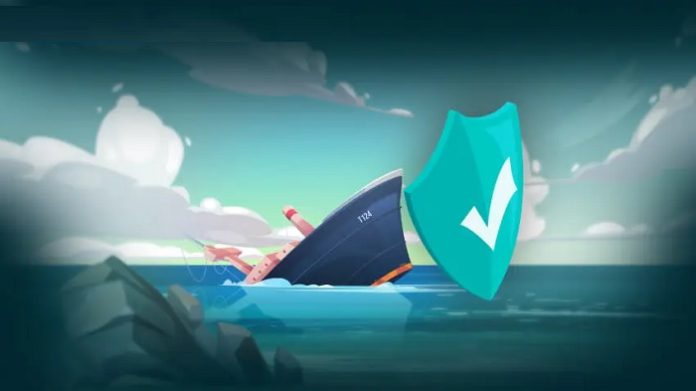The subject of marine insurance policies is quite wide and encompassing in its own way. There is a categorization amongst the various types of marine insurance policies. Depending on the needs, specifications, and requirements, there has been a division in various policies. Insurance policies are designed to manage risks. You need these in case of unfortunate incidents like damage to the property. When it comes to ships it is obvious that the stakes are higher. There are various instances when you can face loss. It could be due to the risk of losing valuable cargo or anything else.
Different Types Of Marine Insurance Policies
You get marine insurance policies when the contract completes its final procedure. You have to submit the legal document of evidence on time. The form of marine insurance policy is from old times.
Read Also: Complete Guide to What is Marine Insurance and its Benefits!
Let’s get into the various types of marine insurance policies.
#1. Voyage Policies
This policy is particularly issued to cover a particular voyage from a place or port to another. In this policy, there is mention of the port of departure and the port of destination. It is written to ensure the coverage of all the risks between the ports. This policy doesn’t go well with hull insurance. The reason is that a ship generally doesn’t operate over a particular route only. Voyage policy also considers the time factor so you get coverage for a specific time period. People who opt for cargo insurance usually buy this policy. The insurer is liable both during the landing and re-shipping of the goods.
#2. Valued Policies
Under this type of marine insurance policy, the compensation value of the loss is fixed. It remains the same throughout the risk. However, the condition may change in case of fraud and excessive overvaluation. There is an agreement on the value of the subject matter. The companies call it insured value or the agreed value. It works as the measure of indemnity at the time of loss. Here, the insured value is not necessarily the actual value. It could be a total of invoices and a percentage of margin to get coverage of the anticipated profits.
#3. Time Policies
Under this policy, there is the insurance of the subject-matter for a definite period of time. For example, 5 am on 1st May 2020 to 5 am on 1st May 2021. In most cases, people take this policy for a period of one year. The most common use of this policy is with hull insurance rather than cargo insurance. The policy may provide coverage while the navigation of the vessel is going on. It could even provide coverage when the product is under construction. There are a few standard clauses that are added to this policy like premium, interests, or freight.
#4. Voyage and Time Policy
This is one of those types of marine insurance policies that are a mixture of policies. They are voyage and time policy. You get the benefits after a certain period of completion of the voyage.
#5. Hull Insurance
It caters to the torso and hull of the shipping vessel. The coverage is also for all the articles and pieces of furniture that are on the ship. Shipowners usually buy this insurance.
#6. Marine Cargo Insurance
This type of marine insurance policy specifically caters to the marine cargo that the ship carries. Also, the insurance pertains to the belongings of a ship’s voyages. The cargo owners get protection against the damage or loss of cargo.
#7. Unvalued Policies
Here, the value of the policy is not determined at the time of commencement of risk. They leave it until the loss takes place. This value that is still not decided is the insurable value or unvalued policy. In deciding the value, factors like invoice cost, shipping, and other factors are taken into consideration. These policies are not common in marine insurance. It is difficult to evaluate the loss after damage poses a problem. In fact, it is more difficult if the consignment is around the port of the destination.
#8. Blanket Policies
Consumers buy this type of marine insurance policy to cover the losses that fall within a particular time and place. You buy the policy for a certain amount. The payment of premium is on the whole of it at the beginning of the insurance policy. Although you can re-adjust the premium at the end of the policy according to the actual risk. If the amount of shipment is greater than the insurance sum you have to pay an additional premium. In the reverse case, the insurance company will pay you the extra premium amount.
#9. Floating Policies
The floating policy describes the general terms only. The remaining amount of each shipment and other particulars are left for declaration later on. People take this policy for a huge sum of amount. The policyholder declares the same after each shipment. One popular term that comes with floating policies is the open cover. Here, there is an agreement between the insurer and the insured. The insured agrees to declare and the insurer agrees to accept all the shipments. The limit is within the scope of the open cover. It doesn’t come under the legal contract of marine insurance. However, both parties are honor-bound.
#10. Single Vessel And Fleet Policies
In this type of marine insurance policy, the insurance company insures a single ship or a fleet of ships. If there is a single ship, we call it a single vessel policy. Similarly, the one with a fleet of the ship we call it a fleet insurance policy. People find these policies interesting as they even insure old and weak ships.
#11. Block Policies
This policy insures marine perils along with incidental inland risks. For example, there is insurance for cotton. Now, it includes the time of processing to the time of delivery at the destination. So during this time if there is a loss, the insurance company will pay the policyholder for loss.
#12. Annual Policy
The annual policy is insurance for a period of 12 months. It provides coverage for goods that belong to the assured.
Read Also: What Is Valuation By Services In Marine Loss?
You can reassign or transfer this policy. Also, the companies don’t issue this policy to the transport operators or contractors. Also, this policy doesn’t come in joint names.
Final Words
The article covers all the major types of marine insurance policies. With this article, you are going to gain a lot of knowledge on marine insurance. In case, you have doubts about these marine insurance policies then feel free to contact us. Write to us with your queries in the comment section and we will answer back to you as soon as possible.







